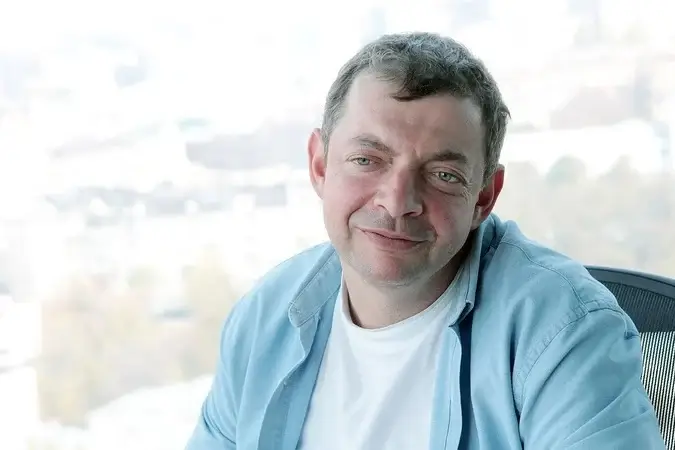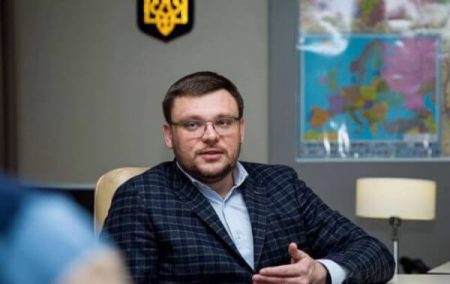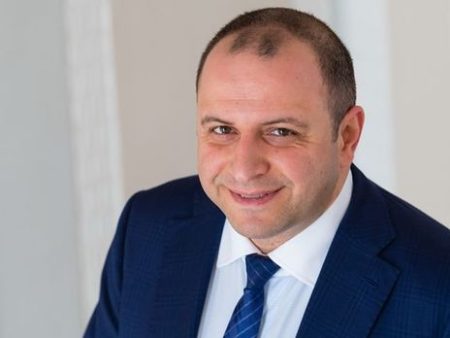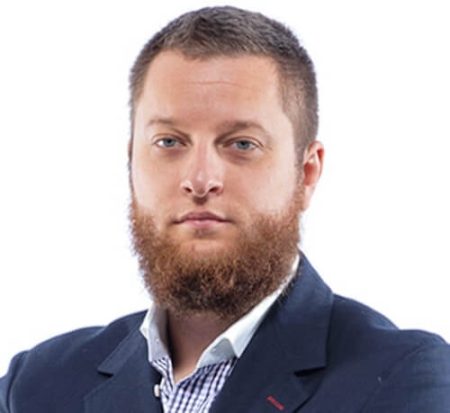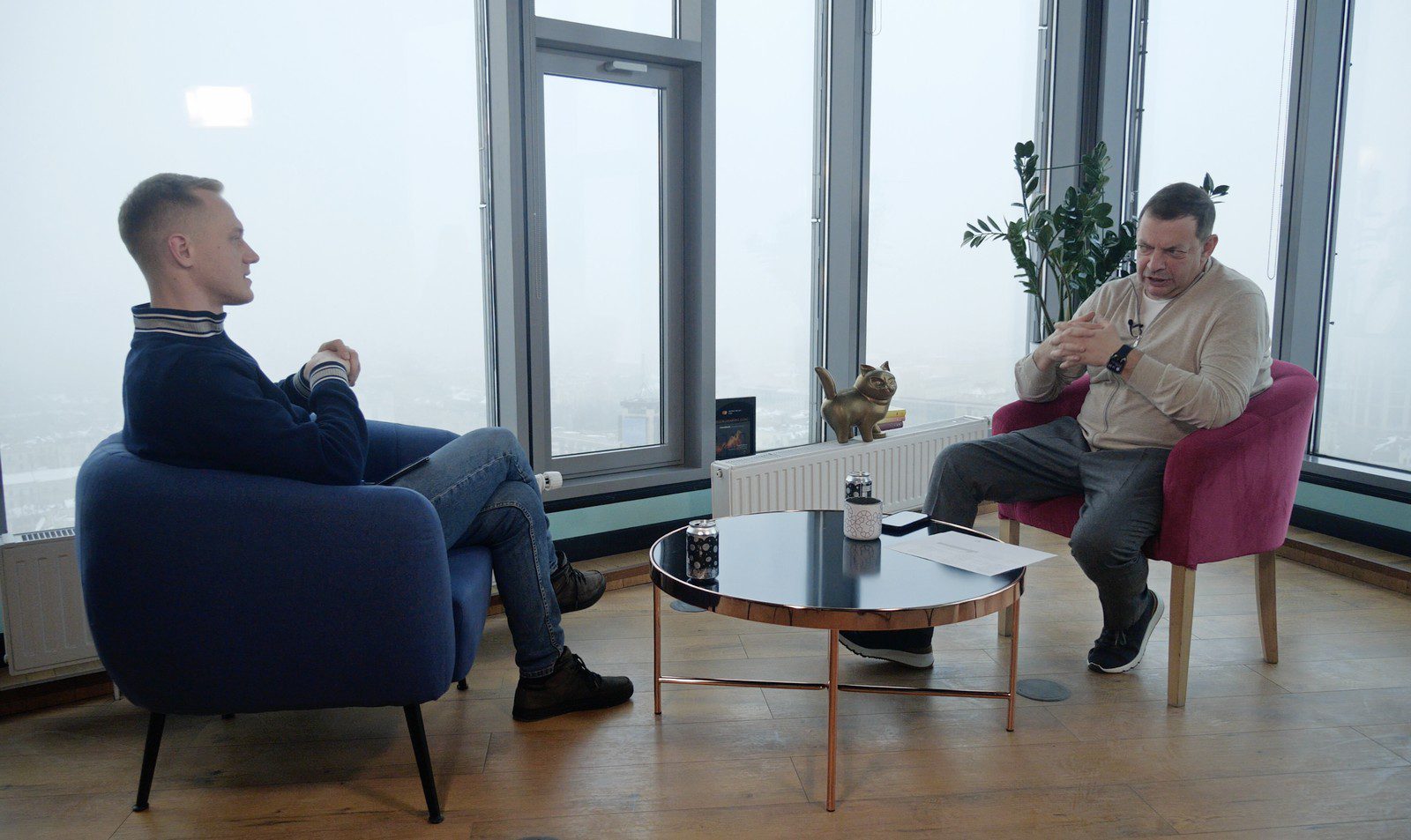
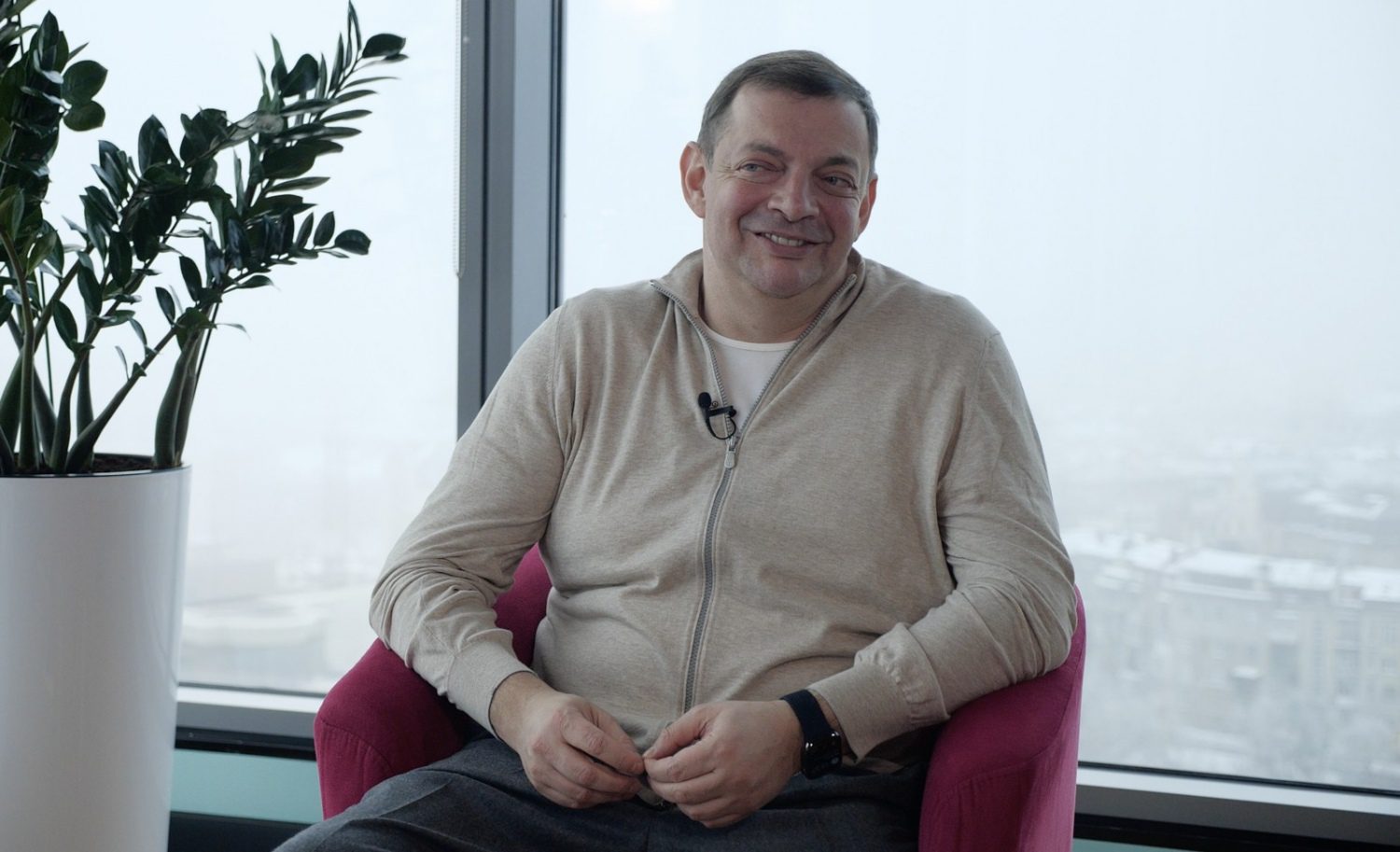
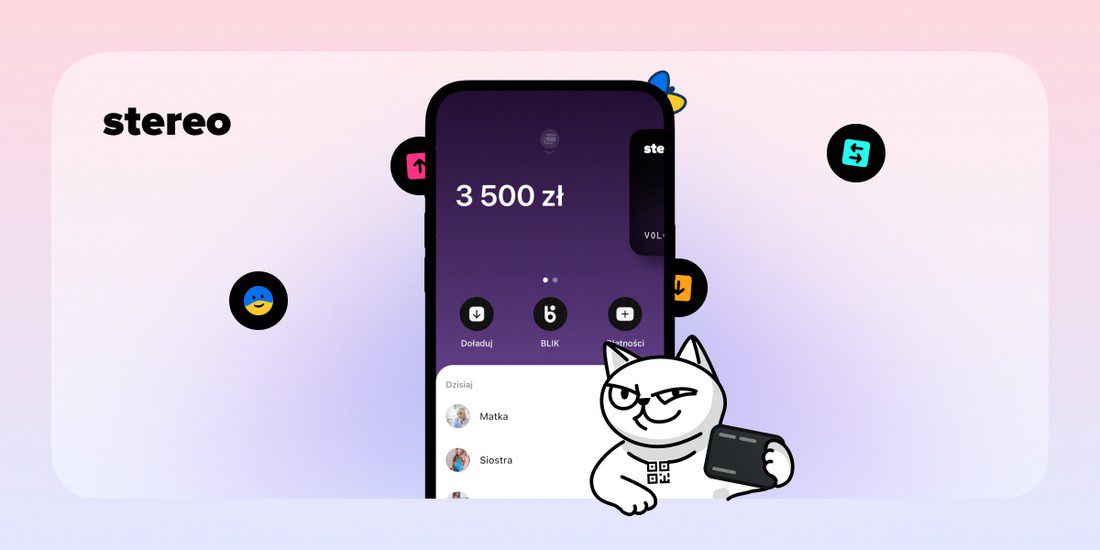
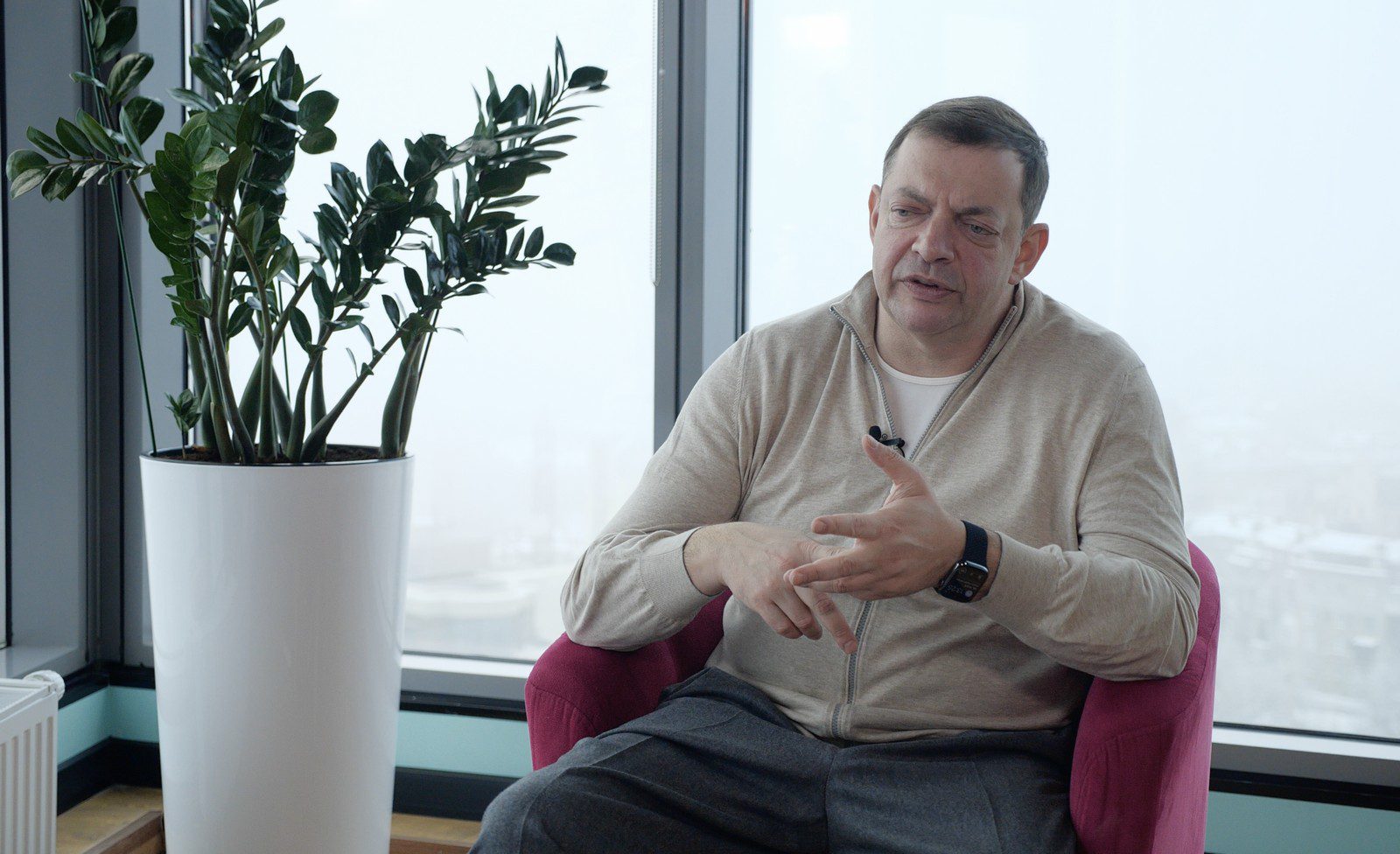
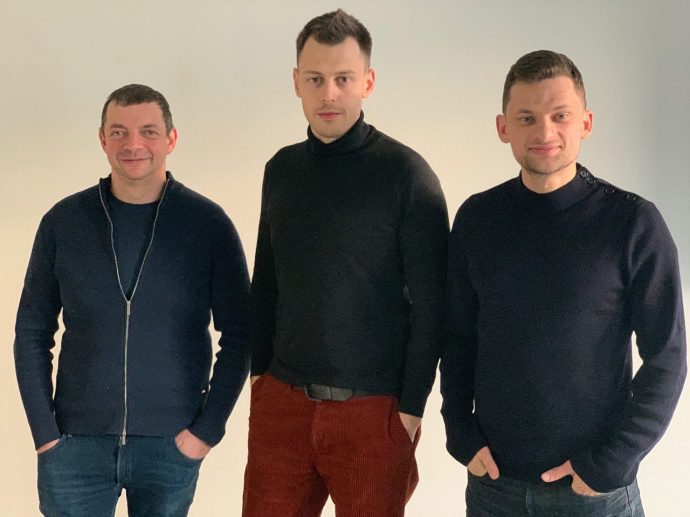
Oleg Gorokhovsky discussed monobank in an interview
The owners of Mono are launching the bank in Poland and are mainly earning during the war and trusting certain currencies, as reported by EP.
Mono is the only bank without branches or a license, but has 7 million Ukrainian clients and is known beyond its borders.
Monobank, being a retail product of Universal Bank, benefits from not being subject to many NBU regulations, making it flexible and progressive.
During the war, Mono managed to increase its customer base by 30% and became the first choice for many customers, according to Oleg Gorokhovsky, co-owner of Monobank.
The 'bank' product gained popularity during the war and raised over 11 billion hryvnias for military support, bypassing payment system limits. fee for 'Bayraktary' I only used regular cards due to payment system limits, but 'bank' allowed to bypass these limits.
The conversation will cover how Gorokhovsky handled debt collection at PrivatBank, why businesses should remove Russian language, and Mono's plan to enter the Polish market.
“Ukrainian companies do not need the Russian language at all”
— I want to start the interview with the language. You switched to Ukrainian. Your social networks are conducted in Ukrainian, public speeches are also in Ukrainian. Do you sincerely want to be in trend?
– It's genuine and important to be in trend. The Ukrainian language trend is very positive. First and foremost, I apologize for not yet mastering the language perfectly.
I’m still translating in my head, so things don’t happen very quickly. I see everyone around switching to Ukrainian, and it's like stepping out of the comfort zone.
Language is a protective factor. If a large percentage of people didn't speak Russian and didn't feel the need to speak Russian, things might have been different.
Now it's clear that the war would have happened regardless. It was simply an excuse to “protect the Russian-speakers.” They would have found another excuse to attack us.
We are a free nation, a free country, and we don’t need to be freed from anything. Everyone has the right to speak any language, but I believe that businesses in Ukraine should use Ukrainian and remove Russian from their interfaces.
Even if it leads to worse internet search results, because Russian-language pages are better indexed, it's not about business. It's about the civic position of those doing business in Ukraine.
Ukrainian companies do not need the Russian language at all.
When we were among the first to stop using Russian interfaces, we were concerned about how customers who had chosen the Russian language would react. I believe the percentage was more than 35%. It was a brave decision.
Then we tried something: when clients contacted our support in Russian, a colleague asked them if they would mind getting a response in Ukrainian.
After discovering that 97.5% of clients said they didn't mind and preferred getting a response in a language that was convenient for them, we understood that the language issue in Ukraine is not genuine.
In Israel, you can't find interfaces in English, let alone Russian. Why do we need Russian in the interface? I think it's not about freedom of choice, but about business position.
— In February, Monobank experienced a major cyberattack. What happened?
— We have always been shielded from cyber attacks because our model doesn't require a website.
The Monobank website is just for advertising. Even if it goes down and stops working, no one in Ukraine would notice. Thanks to this, we have always been well protected from DDoS attacks.
We began promoting our “jar”, which is essentially just a link. If you have a link, it can handle a heavy load.
We saw this when there was a large gathering of Prytula and Lachen, then Prytuly with Sternenko. Their link was heavily loaded, indicating a powerful DDoS attack.
In the event of a large gathering, we notice the heavy load, meaning the enemy is trying to disrupt it.
Oleg Gorokhovsky talked about monobank in an interview
How is it done technically?
– The process is straightforward. You have the resources and can generate a lot of request traffic.
Millions of customers try to access this link simultaneously. If the servers fail, things begin to slow down or show an error when attempting to access the link.
This is a common scenario, but there are effective tools to handle it. You can identify the IP addresses causing the load and block them from accessing the link.
— Have you enhanced security at Monobank over the past 11 months?
“Security” is the wrong term. This is about reliability. We have invested in reliability.
When we realized we couldn't guarantee uninterrupted service delivery to customers, we moved some of the capacities located in Ukraine to the cloud. This improved reliability.
Even if there is no power or communication, if a client reaches out to the bank, the bank will respond, as it doesn't respond from Ukraine. Overall, we have always maintained a high level of security.
How much money have you spent on cloud migration?
— We invested about a million dollars in cloud migration.
— In recent months, there have been threats of new blackouts and attacks from side of the Russian Federation. What protective measures are you implementing?
– Not. We even observe from the client's behavior that people are accustomed to warfare. Surprisingly, we haven't noticed a decline in our clients' activity during air raids.
It states that we are a courageous nation, used to having neighboring countries as allies.
“Thanks to the ‘banks’, Ukrainians have collected more than 11 billion for the Armed Forces of Ukraine”
Do you store your money in banks?
– I keep all my possessions in banks because it's inconvenient to keep money at home. How can you keep more than 100 thousand dollars at home? Where would you store it? You can't leave the house and have to worry about the money's safety.
Many people are withdrawing cash, concerned about what might happen.
I don't see that.
At the start of the war, bankers were worried about a potential shortage of money and customers rushing to withdraw their deposits. If a banking panic had escalated at the end of February or early March, it would have been very detrimental to the country.
However, clients realized that banks were quite dependable, especially after the government and the president announced that all deposits in banks were backed by the state.
I believe that in the economy, this was one of the key decisions. The war opened up an avenue: when things get tough, we can take action without bureaucracy.
When banks applied for insurance from the National Bank on the first day of the war because it was unclear how they would fare, all applicants received the funds within two hours without any red tape.
When the president declared that all money was guaranteed during the war, it appears to have been his personal choice. It worked very well. We saw customers leaving their money in the banking system.
How much money do you have in your bank accounts?
– That's a very personal question. I won't divulge that.
– Alright, but in which currency?
(laughs) It's a simple question. Unfortunately, the hryvnia doesn't ensure safety at the moment. There's a lot of unpredictability in the economy, so naturally, any savings are in dollars and euros.
I don't think it's necessary to boast or discuss it. I have money, but I'm not on the Forbes list yet.
Oleg Gorokhovsky discussed monobank in an interview
— How does Monobank generate revenue?
– Monobank typically earns from interest on loans and commission income. Previously, this ratio was 60% interest on loans and 40% commission income. Now it's 60% commission income and 40% interest income from loans.
By the way, we've reduced our loan portfolio by about 15%. We're lending very cautiously now. Unfortunately, many clients couldn't repay their loans as they're now in default.
How did the war impact your clients? I feel like you had more of them during the war.
— All banks have more customers now. The average number of cards per client used to be around 1.7-1.8. Now, in my expert opinion, it's 2.5-3.
Why is that? Because there are restrictions at one bank. For example, you can't spend more than 100 thousand hryvnias abroad in a month. You also can't withdraw more than 12.5 thousand hryvnias per week abroad.
These restrictions made people need a backup plan. This plan B has allowed certain players who previously struggled to attract new customers before the war.
In my opinion, at the start of the war, we had about 20-25% of the card market. As time passed, we became the top choice when customers needed a new card.
So how many customers do you have?
— Currently, we have 6,750,000 customers. At the beginning of 2022, we had exactly 5,000,000 customers. So, over the year, we have grown by more than 30% in customer numbers.
– Your growth is also due to the “bank” function, where volunteers hold large gatherings. How much money was collected this way for the needs of the Armed Forces of Ukraine?
— We collected more than 11 billion hryvnia. This is a much-needed tool for Ukrainian charity.
— How did you come up with the “Bank” function?
– We had the “Bank” until February 24th. This is not a new feature in banking. It is called differently, for example, in Privatbank, it is called “Piggy Bank”. It is a feature for small savings.
We realized that this tool can be used not only for personal savings, and made it possible for many people to work towards a common goal.
It all started in the middle of May. The head of Ukrposhta, Igor Smilyansky, kindly gave me a set of stamps with a Russian ship. I then held a draw of these stamps for those who donated more than 100 hryvnias in the bank.
We started this viral story with the “jar” to show how a bank can be used as a public example. After that, we updated the service: we made it possible to top up via ApplePay and GooglePay, and made it easy to add a card to the “banks”.
Why don’t cards work well in a gathering? For example, if the gathering for Bayraktary used only cards, it would end in an hour. People would run into limits that do not even exist in banks, but in payment systems.
On the other hand, the “bank” uses a system designed to pay for goods and services in stores, which allows you to bypass the limits. Thanks to this, the “bank” is a reliable tool for collections. I am proud that we have helped here.
“We enter the market in Poland”
– Your partner, the main shareholder of Universal Bank Sergey Tigipko, said in November 2022 that Monobank plans to go out to the Polish market. You then did not want to comment on these words. Is this true?
– Yes. We are starting our journey in Poland. This will be a good example of Ukrainian expansion to the West. Banking is named by users among the benefits that Ukrainians experience in Ukraine and which they lack in Europe (EU).
According to our estimations, there are 3 million Ukrainians in Poland. We want to provide them with a convenient service, which they are used to in Ukraine and which will show them how it should work. I hope the Ukrainians will support us.
Gorokhovsky talked about monobank in Poland in an interview.
– So the focus in Poland is on Ukrainians?
– This is for all users. We will be very glad to welcome the Poles. To open an account in this project, you need to be in Poland and have PESEL (similar to TIN). We also have a partner bank there, and it has a rule for opening accounts.
Firstly, we want to create a convenient path for transfers between Poland and Ukraine, and vice versa. We also want to offer the familiar service that customers are used to. We plan to introduce rewards, games, and promotions.
We have many plans, but it all depends on how our customers support us. I encourage you: even if you don’t really need it, if everything is decided in Poland, don’t be lazy and support us.
We have a very unique name in Poland: stereo. Here we are mono, and there we are stereo. It is very convenient.
Oleg Gorokhovsky discussed monobank in an interview
– Will the stereo application differ from mono?
— We really want it to be the same, but it will be different, because mono already has a lot in Ukraine. Stereo will develop similarly to mono in Ukraine.
Why didn’t you comment on Tigipko’s words earlier?
— It was early. I believe that when such an important event occurs in a company, such news should be accompanied by a call to action, that is, a call to action.
That is, you have to provide something so that customers can express their interest: either a link to download, or, like now, I’m trying to give a link to pre-order.
That is, when you just spoil the news, without any opportunities for customers, you fire a blank shot, this is not very useful for converting to customers.
We have a very simple site, stereo.io, please leave an application, when we start work, we will contact you. We expect this to happen in the first quarter of 2023. That is, the wait is not too long, join.
“I just graduated from the university and they sent me to Perm to beat out money”
– Once you were one of the leading managers of PrivatBank. And what happened before that? How did you learn to make money? What was your first business?
– I tensed up when you started talking about Privatbank (laughs).
– Why?
— Because people might think that if I worked at Privatbank, then I have something to do with these cases that are taking place around Privat.
It was a huge bank, it had a huge number of departments. I was in charge of the retail division that dealt with cards.
I studied at PrivatBank. Before graduating from college, in my last year I went to practice at PrivatBank and stayed there.
Oleg Gorokhovsky discussed monobank in an interview
— Was it your first job?
– Until 2016, this was the only place of work. When I came there for practice, I set myself the goal of making a career in Privat. Therefore, he made a career there for 20 years.
He rose to First Deputy Chairman of the Board and was responsible for the retail business. Including due to the fact that I was doing this, Privat had more than 20 million cards. It was the first bank in Eastern Europe in terms of the number of cards.
I am very focused on the retail business. I feel like an expert in the card business, in card lending, but I’m not very good at, for example, corporate lending or large loans.
— What is your first position in Privatbank?
— I was a trainee in the department of correspondent relations. For about a year I worked with the language: I glued envelopes that we sent to correspondent banks. That is, we sent envelopes, I sealed them.
How did you succeed in building such a fast-paced career?
– I got my first clear goal when I was sent on a business trip to recover money from a bankrupt bank in Perm, Russia. It was in 1996.
There, Privat had some money stuck in its correspondent account. I had just finished university and had to send someone to try and get my money back.
It was a completely hopeless situation. I took a risk and left. Even now I remember how my mother saw me off: how to go to the front.
I arrived there and they told me: “We don’t give money to anyone.” I stayed there for a week and came every day. I went into the reception, sat down, approached everyone who passed by, and said: “Give us our money.”
A week later, some leader called me and said: “We didn’t do this for anyone, but you pressured everyone here so much that we have a list of those who are to blame for us.” There are some pledges, clothes …
– Did you give away the goods?
– Yes! They gave me two trucks of some jackets that I brought to the Dnieper. Then I sold them at the market for another year, and repaid this debt. So I got promoted for the first time, and then my career went pretty quickly.
– Who taught you?
– I think that Alexander Dubilet. This is a very progressive manager. The part that concerned technology, he did flawlessly.
– What is your relationship with Dubillet Sr.?
– We have never been very close friends with him, but I treat him with great respect. We have a good relationship. Unfortunately, we rarely cross paths.
“I have no complaints about Dmitry Dubilet”
– Wikipedia says that the founders of Monobank are Alexander and Dmitry Dubilety, Oleg Gorokhovsky, Mikhail Rogalsky, Vladimir Yatsenko, Lyudmila Shmalchenko and Vladimir Kovalev. Who is the owner now?
– Active management is carried out by: me, Mikhail Rogalsky and Vadim Kovalev. Vadim Kovalev means risks, while with Mikhail Rogalsky we are more involved in marketing and other things. So there are three people left.
– What is your part? So it remains a little more than 17%?
– Just like it was. I couldn’t buy anything (laughs).
Monobank is the first Fintech Band project launched by Oleg Gorokhovsky, Mikhail Rogalsky and Dmitry Dubilet after leaving PrivatBank.
— How much money did you all invest to launch Monobank?
– Not much compared to the result. It cost us about 5 million dollars to develop this product, and about the same amount Universal Bank needed to launch the project.
– Many economic journalists and your colleagues criticize you for spending the money that you “withdrawn from Privatbank.”
– Well, that’s stupid. This is pure nonsense. I did not withdraw anything from Privat. I can’t comment on anything about Privatbank, because it’s a huge colossus. I made money, paid taxes, and spent my money.
As far as I know, none of the partners spent any other money than their own, which they had in their accounts.
In general, I ask you to be more careful with the accusations. After all, no one is to blame until it is proven by the court. It will be proven – it will be another matter.
– Yatsenko and Dubilet Sr. are no longer related to Monobank due to suspicions of NABU?
– I am unaware of this. I know that Yatsenko’s package was given to his wife, and the package that was with Alexander was registered for his son as per public sources.
– In previous interviews, you talked in depth about your friendship with Dmitry Dubilet, who worked in the Goncharuk government and therefore left the Monobank project. Why did you quarrel with him?
We didn’t quarrel with him. We still have a great relationship with Dmitry, but he is involved in another project.
It was very challenging for him to return. Unfortunately, when you are Ukrainian PEP (politically significant persons – EP), that is, when you went into politics – this is a difficult story to return to business.
As far as I know, he now has a quite successful history. He himself does something like what we did in Ukraine. Dimitri does it in emerging marketsand he has very good results.
We continue to communicate with him.
Do you and Dubillet have an intellectual property dispute?
– I do not have.
– Forbes wrote that the lawyer of your business partner Lyudmila Shmalchenko sent a letter to Dubilet demanding to explain why his project in Azerbaijan uses similar design and marketing moves of Monobank.
– By the way, Lyudmila Shmalchenko was not my partner at that time. But yes, she has a question for Dmitry. I do not have any questions.
– Your colleagues in the market say that when you founded Mono, you agreed with the team that no one would use the ideas that they came up with in Mono in other projects. This is true?
— Yes, agreed (pauses). We are involved in Monobank, now we are going to Poland. If Dmitry has questions and they have time, please, they can ask him these questions. I have things to do.
— Dmitry Dubilet is your friend?
Yes, we have a very close relationship with him. I won’t say that now we are as close friends as we were when we started in 2017, but these are friendly relations.
“It is important that everyone understands that now we need to help the Armed Forces of Ukraine”
— How much is Monobank worth now?
— I find it difficult to say how much a Ukrainian company can cost now.
I can say about myself: now I would not sell Mono for a billion dollars. I think it’s worth over a billion. And when we win and when everything returns to normal, we will see a real assessment.
You are a dollar millionaire, that’s obvious. Do you have any recipe for how to handle money properly?
– Not. I have this recipe: you need to try to remain human, no matter how much money you have.
It is very important that you remember what makes you have money, if you have any at all. It is very important that everyone understands that now you need to help the Armed Forces of Ukraine, because without the support of the Armed Forces of Ukraine you will have nothing.
— You have more than 120 thousand followers on Facebook, almost 180 thousand on Instagram and 160 thousand on Telegram. Why do you need this publicity?
— If you are in business and want to be trusted in your business, then it is much easier to trust a specific person than logos. This is a conscious strategy to associate your business with a specific person.
– So, you need to develop a business and simultaneously develop a personal brand?
– The personal brand of the founder and leader is very important to be successful and your brand has respect and trust.
Are you interested in politics?
– Not.
So categorically…
“I am not interested in politics, but everyone who can help should help.
Once upon a time, Mikhail Fedorov needed my help, and I was very happy to be useful. It was efficient. Now “Action” is what is called Ukraine’s great advantage over Europe. I am involved in this, it is a great honor for me.
– And the last thing: how not to lose heart?
– If the spirit has fallen, you need to load your schedule as carefully as possible. You should not have enough time to be bored and “loaded”. It is necessary to “plow”, then everything will be fine. If you’re depressed, roll up your sleeves and get to work.
Roman Kravets, translation Skeleton.info
